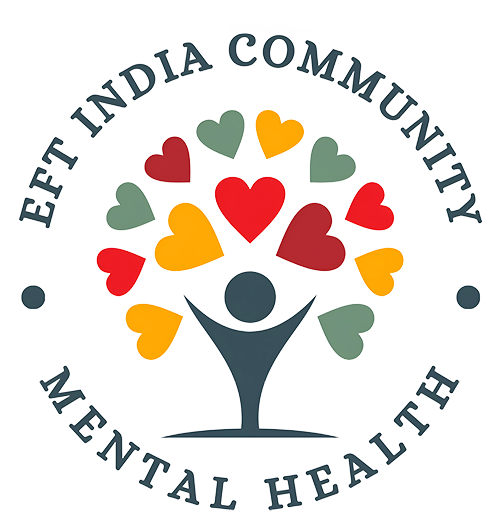Have you ever felt stuck in sessions, watching clients repeat the same emotional patterns—despite all your best efforts?
As therapists, we’ve all been there. Whether you’re supporting individuals, families, or couples, one truth remains: humans are wired for connection. And when those bonds are threatened or broken, emotional distress emerges.
That’s where Emotionally Focused Couple Therapy (EFCT) comes in—not just as a tool for couples therapy, but as a transformative framework for understanding all human relationships.
In this post, we’ll explore why EFCT is a must-learn for Indian therapists, regardless of whether you currently work with couples.
What is Emotionally Focused Couples Therapy (EFCT)?
Emotionally Focused Couple Therapy was developed by Dr. Sue Johnson and is grounded in attachment theory, emotion science, and systems theory. It helps therapists guide clients in identifying negative interactional cycles and building secure emotional bonds.
Originally developed for couples, EFCT is now widely recognized as an effective model that supports individuals and families too, by addressing the core emotional needs that underlie human distress.
📌 Research shows EFCT has a 70–75% success rate in helping distressed couples recover, with improvements that are long-lasting and significant (Johnson et al., 2015; Wiebe & Johnson, 2016).
Why Every Therapist in India Should Learn EFCT
- Attachment Theory Applies Beyond Couples
EFCT isn’t just for romantic partners. It’s built on attachment science, which explains how people seek safety, connection, and validation in all close relationships.
In India, where interdependence, extended families, and collectivistic values shape emotional lives, understanding attachment patterns becomes crucial.
🔍 EFCT helps therapists work with clients struggling with parent-child dynamics, friendship ruptures, sibling conflicts, or even workplace trauma rooted in attachment injury.
- Culturally Aligned With Indian Values
In Indian contexts, where emotions are often suppressed in the name of duty or “adjustment,” clients may feel guilt, shame, or fear when asserting emotional needs.
EFCT:
- Validates emotional expression
- Honors relational interdependence
- Helps clients understand that needing others is human, not weak
This model bridges traditional family values with modern therapeutic science, offering a respectful, evidence-backed approach that works within Indian realities.
- Helps You Work With Individuals, Not Just Couples
You can use EFCT principles even in individual therapy, thanks to Emotionally Focused Individual Therapy (EFIT)—an expansion of the model for solo work.
In fact, many Indian therapists who work primarily with individuals report using EFCT concepts to help clients:
- Heal from childhood emotional neglect
- Recognize internalized relational cycles
- Rebuild self-worth and emotional resilience
EFCT offers a map for emotional processing and relationship repair that is applicable across populations.
- Backed by Rigorous, Cross-Cultural Research
EFCT is one of the most empirically supported models of couple therapy in the world.
- A meta-analysis by Wiebe & Johnson (2016) confirmed its effectiveness across diverse populations.
- More recent studies (Sibrava et al., 2022; APA, 2023) show that attachment-based therapy outperforms cognitive-based approaches in long-term emotional recovery for relational trauma.
🔗 American Psychological Association – EFCT Effectiveness
- Practical Skills That Make You a Stronger Therapist
EFCT gives you:
- A clear framework to structure sessions
- Language for emotions and attachment needs
- Tools to de-escalate conflict and shame
- Step-by-step interventions (like enactments) that build emotional safety and connection
EFCT fills the “now what?” moment many of us experience after clients share deep pain or emotional blocks.
EFCT in India: Why Now?
India is seeing a mental health revolution. More couples are reaching out. Therapists are exploring trauma-informedand attachment-based modalities. But there’s still a gap in structured, experiential training.
That’s why EFT India is bringing EFCT to India—in person—for the first time, led by an internationally certified trainer.
🎓 Whether you’re a new therapist or seasoned practitioner, this training will deepen your skills and expand your lens.
Practical Takeaways
✅ Use EFCT principles in family therapy to shift negative interaction cycles
✅ Apply attachment mapping to understand client defense mechanisms
✅ Introduce “soft emotions” in sessions to deepen emotional awareness
✅ Use EFCT interventions like enactments and reframes—even with individuals
✅ Join a growing community of Indian therapists trained in this model
Internal Resources
- Learn more about EFCT India training
External Resources
Ready to Deepen Your Practice?
We invite you to be part of this exciting movement.
Register for the upcoming EFCT training in Delhi this June, and become one of the first therapists in India trained in this powerful model.
🔗 Click here to join the EFCT training
Or…
📩 Subscribe to stay updated with upcoming EFCT/EFIT webinars and resources.




